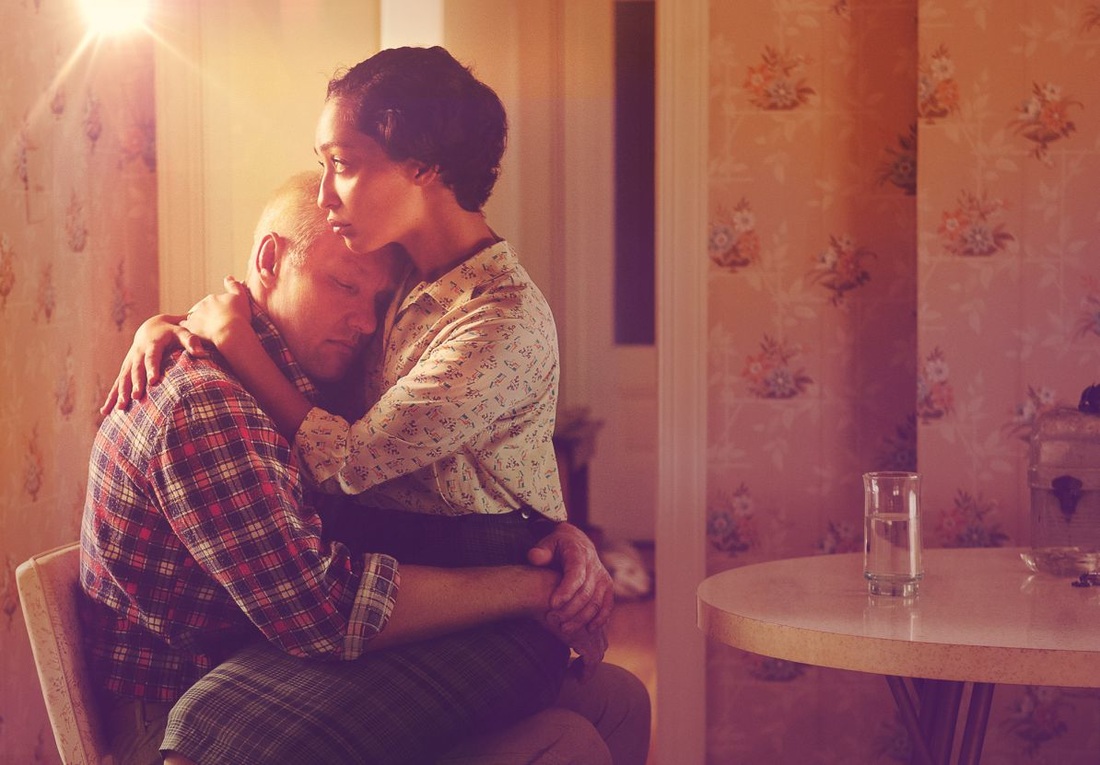For those unaware, the Loving couple were involved in a landmark U.S. Supreme Court Case, Loving v. Virginia, that invalidated laws prohibiting interracial marriage. Getting to this point was not easy; the Lovings endured prison sentences, dirty looks, restraining orders, and covert operations just to live. Though it was set in just the late 1950s, the America the Lovings lived in feels far different from the one we have now. Adam Stone’s camerawork glides over the acres of land in rural Virginia and fixates on the time period’s bulky cars, manual labor construction, and large wooden estates. Such a setting makes the Loving’s relationship all the more romantic, as scenes where Richard and Mildred simply hold each other on their front porch for solidarity become some of Loving’s most memorable moments.
Really, there’s not much to say regarding Loving’s story or bold choices because it’s simply an impeccable portrayal of humanity through those sentimental moments. Loving ditches exposition and overproduction for a hushed two-hours of complex and imperfect leading characters. I argue this method hits the mark by cogently communicating the injustice of the Lovings’s situation as two developed and imperfect humans just trying to live. Not only is Loving’s delivery effective, but it’s highly accurate, as the Loving couple in real life avoided the press and even sat out their court cases to spend time with each other and their children. Though they lived quietly, their relationship made powerful strides in American history that will continue to reverberate for generations.
So it’s in those moments where the Lovings watch their mixed-race children play, or in the trailer where Richard tells his ACLU lawyer Bernie Cohen (Nick Kroll, who performs excellently in a much more serious role than he’s used to) to “tell the judge I love my wife” that Loving stunningly excels. Nichols proves that you don’t have to have manipulating scenes of four black girls in an exploding Birmingham church or a montage of slave lynchings set to Nina Simone’s “Strange Fruit” to make a statement. Edgerton and Negga deliver two of the year’s best performances, Negga especially because she even expertly captures the identity questioning that Mildred faced in real life (backstory: Mildred identified as part Indian, part black, and part white). With this in mind and the film’s heroic subject matter, Loving definitely seems like a shoo-in for the Oscar nominations, a status it absolutely deserves. Loving may not be the most entertaining film out there, but it’s compelling nuances are worth the engagement.
GRADE: B

 RSS Feed
RSS Feed
